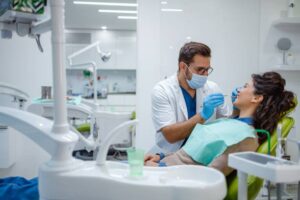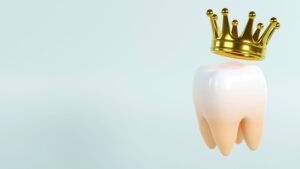
Even though you might try to plan, Accidents do happen. These mishaps may necessitate immediate dental or medical care. Getting the emergency dental care, you require as quickly as possible is vital.
A dental emergency usually carries a high risk of losing teeth that could be irreparable, have significant bleeding gums, or severe tooth pain. You should go to the dentist’s clinic immediately if you’re suffering from an emergency dental situation. The problem could be apparent quickly, such as when the tooth gets knocked out during a game, or they might develop gradually, for instance, when a tooth develops an infection.
Preventing Dental Emergencies
Regularly scheduled regular dental visits can help you avoid dental crises. However, your busy schedule may get in the way. Many people have difficulty keeping up with regular dental appointments. There are many tips to prevent dental emergencies.
Maintain Routine Dental Care
Scheduling at minimum one visit to your dental professional every six months could assist in avoiding dental emergencies. This is because regular visits to your dentist let your dentist carefully monitor your oral health for any warning signs of danger. Dental cleaning services are done in conjunction with routine checkups to remove tartar and plaque off the teeth’s surface.
Plaque removal reduces the number of oral bacteria and lowers your chances of developing gum disease and tooth decay. Reducing the risk of tooth decay can assist in preventing dental problems since many dental problems are caused by or made worse through tooth decay. Consult your dentist to know more about an emergency dentist for broken teeth.
Avoid Parafunction
Every dental problem that is not addressed correctly is termed a parafunction. Anything other than biting or chewing food is typically considered to be parafunctional. Most commonly, you will use your teeth as tools to grasp or open objects, bite your nails, and grind your teeth.
Because they put your teeth under more significant strain than they need to, parafunctional habits pose a risk to your teeth. The teeth may break and chip or be loose. It can affect how your jaw joint is functioning.
Wear a Mouthguard
The people who grind their teeth frequently do not notice the problem until their dentist brings them to pay attention. It is possible that under these circumstances, your dentist could recommend wearing a particular kind of mouthguard called a night guard. The night guard is a barrier to safeguard your teeth and reduce pressure on the jaw joint.
When participating in some sports where face impact is feasible, wearing a mouthguard could be recommended. Mouthguards may be required or urged in these activities. Wearing a mouthguard for sports can safeguard you from various oral problems in any situation.
Be Careful While Chewing Hard Foods
Certain foods can cause damage to teeth even if you can successfully crush, shred, and chew on various food items. This includes popcorn kernels, nuts, or hard sweets, which tend to be complicated. It’s also crucial to be aware that teeth that have dental decay are more fragile and susceptible to breaking or chipping when chewing on foods that are only moderately hard. Visit a dental website; check it out to get more information.
Avoid Bruxism
The word “bruxism” refers to teeth grinding or clenching. The forces produced by clenching or grinding are much more substantial than the forces resulting from chewing, considering that the teeth are strong enough to stand up to these forces. The tooth’s structure weakens whenever they’re constantly and vigorously pressurized together. Look up “Dependable dentist in Manchester” for the best results.



